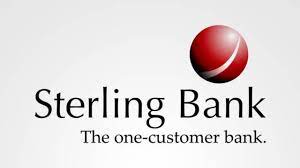From the extension of interest rate reductions to the Central Bank Nigeria intervention facilities, the establishment of the “Naira 4 Dollar Scheme,” acceptance of the NAFEX rate as the inter-bank benchmark rate, and the introduction of the eNaira are just a few examples of the many policies of the apex bank in 2021.
In February 2021, the CBN published its Regulatory Framework for Open Banking in Nigeria, often known as the “Open Banking Framework.” Through the establishment of a single Banking Industry Application Program Interface (API) standard, the Open Banking Framework takes a supportive approach to open banking and provides guidelines for data exchange across the banking and financial services ecosystem.
APIs are essential for accomplishing the integration of the whole banking industry, as well as the underlying philosophy of Open Banking. In addition, the framework would encourage innovation, increase competition, increase financial inclusion, and broaden the range of financial products and services available in Nigeria.
In the outgone year, the CBN reminded DMBs, non-bank financial institutions, and other regulated financial institutions that trading in cryptocurrencies and facilitating payments for cryptocurrency exchanges are illegal.
The CBN had previously published a circular titled, “Circular to Banks and Other Financial Institutions on Virtual Currency Operations in Nigeria” in January 2017, expressing reservations about the unregulated and anonymous character of virtual currencies, as well as the danger of criminal abuse.
Although the CBN did not out rightly ban cryptocurrencies, it did prevent regulated institutions from facilitating or engaging in bitcoin transactions. The apex bank also ordered all financial institutions in the country to identify and terminate any cryptocurrency traders’ and exchanges’ accounts.
Also, in a circular dated 5th February 2021 and distributed to regulated financial firms, the apex bank of Africa’s largest economy warned and reminded local financial institutions against having any transactions in crypto or facilitating payments for crypto exchanges.
The Nigerian Central Bank took further steps and locked the bank accounts of some fintech platforms, including RiseVest, in August.
The Bank, on March 3, 2021, extended the window for reduction of interest rate from 9 to 5 per cent per annum on its intervention facilities, to February 28, 2022, as part of measures to mitigate the impact of the COVID-19 pandemic on the economy. In addition, roll-over of moratorium on repayment of intervention facilities would be considered on a case-by-case basis.
The Bank introduced the “Naira 4 Dollar Scheme” on March 8, 2021, to boost the inflow of diaspora remittances into the country. The Scheme serves as an incentive, as all recipients of diaspora remittances, through CBN licensed International Money Transfer Operators, would be paid N5 per US$1 received as remittance inflow. The Scheme, originally scheduled to end on May 8, 2021, was extended indefinitely by the Bank, on May 5, 2021.
In an effort to ensure uninterrupted services to customers on Unstructured Supplementary Service Data (USSD), a meeting held on March 15, 2021 and attended by Mobile Network Operators (MNOs), Association of Licensed Telecoms Operators of Nigeria, Nigerian Communications Commission (NCC) and the CBN, deliberated on and resolved key challenges.
It was decided that USSD services for financial transactions conducted at DMBs and all CBN – licensed institutions would be charged a flat fee of N6.98 per transaction effective March 16, 2021. In order to enhance convergence of exchange rates in Nigeria, the Bank, on May 24, 2021, adopted the NAFEX rate as the benchmark rate in the inter-bank market.
The CBN outlawed the sale of foreign exchange (forex) to Bureaux De Change (BDC) operators in July 2021. The governor of the CBN, Godwin Emefiele made this known while addressing the press during the MPC briefing, 27th July 2021.
CBN’s policies that shaped 2021
By Segun Odunewu
Lagos
From the extension of interest rate reductions to the Central Bank Nigeria intervention facilities, the establishment of the “Naira 4 Dollar Scheme,” acceptance of the NAFEX rate as the inter-bank benchmark rate, and the introduction of the eNaira are just a few examples of the many policies of the apex bank in 2021.
In February 2021, the CBN published its Regulatory Framework for Open Banking in Nigeria, often known as the “Open Banking Framework.” Through the establishment of a single Banking Industry Application Program Interface (API) standard, the Open Banking Framework takes a supportive approach to open banking and provides guidelines for data exchange across the banking and financial services ecosystem.
APIs are essential for accomplishing the integration of the whole banking industry, as well as the underlying philosophy of Open Banking. In addition, the framework would encourage innovation, increase competition, increase financial inclusion, and broaden the range of financial products and services available in Nigeria.
In the outgone year, the CBN reminded DMBs, non-bank financial institutions, and other regulated financial institutions that trading in cryptocurrencies and facilitating payments for cryptocurrency exchanges are illegal.
The CBN had previously published a circular titled, “Circular to Banks and Other Financial Institutions on Virtual Currency Operations in Nigeria” in January 2017, expressing reservations about the unregulated and anonymous character of virtual currencies, as well as the danger of criminal abuse.
Although the CBN did not out rightly ban cryptocurrencies, it did prevent regulated institutions from facilitating or engaging in bitcoin transactions. The apex bank also ordered all financial institutions in the country to identify and terminate any cryptocurrency traders’ and exchanges’ accounts.
Also, in a circular dated 5th February 2021 and distributed to regulated financial firms, the apex bank of Africa’s largest economy warned and reminded local financial institutions against having any transactions in crypto or facilitating payments for crypto exchanges.
The Nigerian Central Bank took further steps and locked the bank accounts of some fintech platforms, including RiseVest, in August.
The Bank, on March 3, 2021, extended the window for reduction of interest rate from 9 to 5 per cent per annum on its intervention facilities, to February 28, 2022, as part of measures to mitigate the impact of the COVID-19 pandemic on the economy. In addition, roll-over of moratorium on repayment of intervention facilities would be considered on a case-by-case basis.
The Bank introduced the “Naira 4 Dollar Scheme” on March 8, 2021, to boost the inflow of diaspora remittances into the country. The Scheme serves as an incentive, as all recipients of diaspora remittances, through CBN licensed International Money Transfer Operators, would be paid N5 per US$1 received as remittance inflow. The Scheme, originally scheduled to end on May 8, 2021, was extended indefinitely by the Bank, on May 5, 2021.
In an effort to ensure uninterrupted services to customers on Unstructured Supplementary Service Data (USSD), a meeting held on March 15, 2021 and attended by Mobile Network Operators (MNOs), Association of Licensed Telecoms Operators of Nigeria, Nigerian Communications Commission (NCC) and the CBN, deliberated on and resolved key challenges.
It was decided that USSD services for financial transactions conducted at DMBs and all CBN – licensed institutions would be charged a flat fee of N6.98 per transaction effective March 16, 2021. In order to enhance convergence of exchange rates in Nigeria, the Bank, on May 24, 2021, adopted the NAFEX rate as the benchmark rate in the inter-bank market.
The CBN outlawed the sale of foreign exchange (forex) to Bureaux De Change (BDC) operators in July 2021. The governor of the CBN, Godwin Emefiele made this known while addressing the press during the MPC briefing, 27th July 2021.
The central bank also confirmed that it will no longer license new BDC operations in the country and have also halted all current processes for new licenses.




